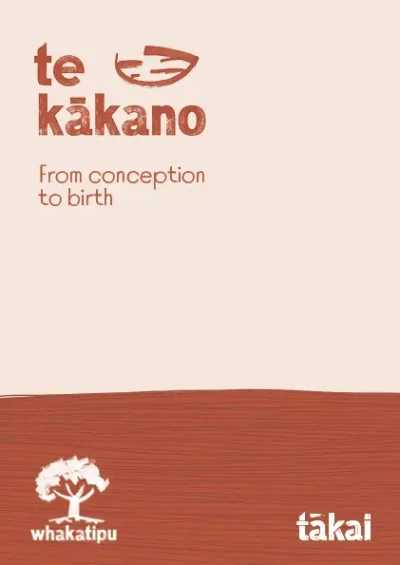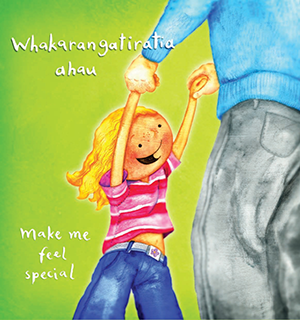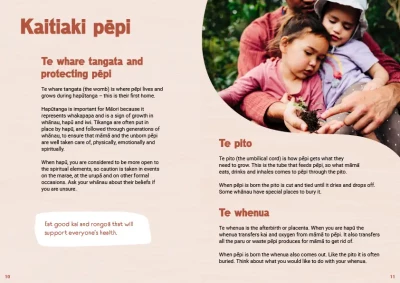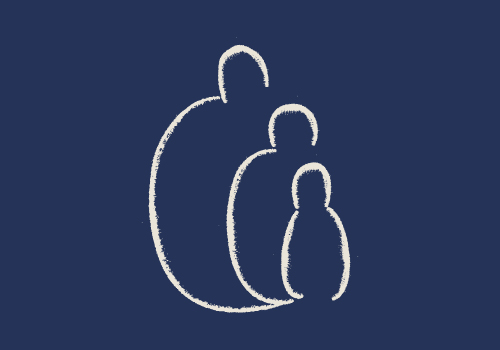
Looking after mum and baby
There is special tikanga in all cultures around ways to look after mum and baby, including ways to deal with the umbilical cord and the afterbirth.
Looking after mum and pēpi is a priority and an important message to communicate to the whānau. It’s repeated and emphasised throughout the Whakatipu booklet Te Kākano.
You can use page 10 to have a conversation with parents about it. Tell them that:
- Just about everything they read about pregnancy will carry the message about the importance of looking after mum and baby.
- Page 10 talks about:
- the importance of te whare tangata (the womb)
- the need for healthy food and keeping mum safe from stressful situations.
Awareness of tikanga
In a Māori context, we mention some particular tikanga around women as the bearers of children, and it specifically mentions tikanga around pregnant mums. Whānau often know a lot of tikanga without being aware that it’s specifically about protection.
Ask whānau:
- Are you aware of any whānau tikanga around keeping mama and pēpi safe?
- Is there someone you can ask?
- Can you think of any rules or ways of doing things that may be helpful?
- Can I help you contact someone who might support you with this?
Te Kākano page 11 talks about te pito (the umbilical cord) and te whenua (afterbirth). Suggest that parents talk with whānau and friends about what they’ll do with te pito and te whenua. Or, if they’ve thought about it already, ask them to share any ideas they’ve had so far.
Other cultural practices
We all have cultural practices, and every culture has ideas and knowledge about protecting mothers and babies during pregnancy. You could ask the family:
- Do you know what your family believes about how to care for pregnant women?
- Are there any special things your mother, aunts and grandmothers did during pregnancy?
- How do other members of the family look after their pregnant women?
- Are pregnant women given any special foods?
- Are there things that pregnant women don’t do or places they’re not supposed to go?
- Are there things they are supposed to do?
- Are there any folk tales, superstitions, legends or stories that talk about caring for pregnant mums?
- Is there someone you can talk to about your family’s beliefs and practices about pregnancy?
- Page 8 talks about what happens with the umbilical cord and afterbirth in a Māori context — does your family have any practices around this?
- Maybe it’s something you’d like to think about and talk about with your family and friends?
In recent years, more non-Māori Kiwis are adopting practices like those described on page 11. These days, parents are more likely to have some ideas about what they might want to do with the umbilical cord and afterbirth.
 pdf 12 MB
pdf 12 MB













